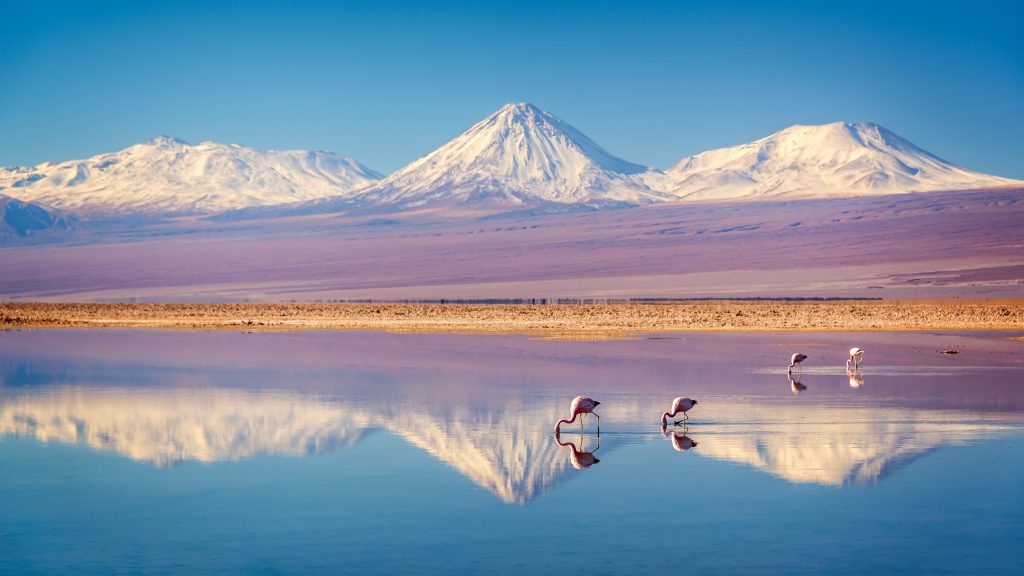
SQM, the world’s No. 2 lithium producer, cut a deal with Chile in 2018 that allowed it to ramp up output from the Atacama, a remote and fragile desert salt flat whose indigenous inhabitants fear may be jeopardized by mining.
When the deal was struck, the Chilean miner promised up to $15 million annually to promote “sustainable development” in those communities.
However, instead of easing tensions between the miner and the locals, the funds have spawned fresh controversy as a key indigenous association has rejected them, saying they are a distraction from ensuring the environment is protected, whilst calling for the deal to be annulled because it did not consult with indigenous peoples first.
The spat has left both SQM and the government – responsible for distributing the funds which now total about $25.3 million – in a bind, according to a Reuters review of regulatory filings, together with interviews with SQM, indigenous leaders and Chilean authorities.
SQM has put its daily water and brine extraction data online to help alleviate environmental concerns
The standoff underscores the complex calculations that miners like SQM, which have for decades operated in far-flung regions, must now navigate as foreign governments, carmakers and consumers scrutinize their social and environmental bonafides ahead of the boom in electric vehicle sales.
A group of high-level officials and ministers met twice in 2020 to discuss the best way to deliver the funds despite the politically-powerful umbrella group, the Atacama Indigenous Council’s (CPA) intransigence, according to documents obtained by Reuters under Chile’s Transparency Act.
In June, officials agreed to seek deals with each individual community, circumventing the CPA, the documents show.
But three years since it signed the initial agreement with SQM, Chile development agency Corfo, which handles the negotiations, has yet to ink a single deal with the communities, the agency told Reuters.
“SQM is more worried about its image than its environmental commitments,” Sergio Cubillos, CPA’s president, told Reuters. “This is about more than just about money.”
SQM rejects Cubillos’s claims that it gives short shrift to the environment. It points to a plan announced in October to immediately slash its use of freshwater and brine, and to produce carbon neutral lithium by 2030.
On the salt flat, relentless sun evaporates brine pumped from beneath the ground into a concentrate rich in lithium. SQM’s process prefers sunlight over mechanical power – a major selling point for electric automakers keen on eliminating emissions from supply chains.
But the native communities that ring the Atacama worry that mining may be depleting scarce freshwater and lithium-rich brine, reducing its availability for people and wildlife.
Cubillos calls the salt flat a “sick patient,” suffering from years of mining, but said more studies were needed to determine “how advanced the illness is.”
Concerns over the science are gaining traction. In 2019, an environmental court sided with the CPA, demanding SQM overhaul a remediation plan following charges it over-pumped brine. A government water study due in February could help shed light on these questions.
SQM has put its daily water and brine extraction data online to help alleviate those concerns. It has also continued its push to work together with the communities, according to Gonzalo Guerrero, who heads SQM’s board commission devoted to these issues.
He told Reuters the company had even offered to underwrite projects to help communities combat the covid-19 pandemic.
If SQM cannot obtain an “unequivocal social license” to operate from stakeholders, then some battery makers could opt to buy from suppliers with a larger carbon footprint
“We neither received a response, not even the opportunity to present (the projects) to the communities,” Guerrero said.
The miner has nonetheless struck cooperation agreements with three of the 18 communities, and expects to sign at least four more by March, Guerrero said. At least one of its partner communities, Toconao, has praised SQM’s commitment to reduce their impact, saying the measures “pointed in the right direction,” according to a filing viewed by Reuters.
Cubillos, whose term as president of the CPA expires on Jan. 18, declined to comment on these agreements, but said his group would “not accept money in exchange for the subsistence of our people.”
The CPA will next week vote on a new president, but sources close to the group said its policies had endured multiple presidencies and were unlikely to change.
While the spat is unlikely to put SQM’s contract or output immediately at risk, it could threaten to overshadow the company’s efforts to reduce its environmental and emissions impacts, says Alex Grant, of consultancy Jade Cove Partners.
If SQM cannot obtain an “unequivocal social license” to operate from stakeholders, then some battery makers could opt to buy from suppliers with a larger carbon footprint, but a more transparent social or governance report card, to avoid the stigma.
“All these things are inter-connected,” Grant said.
Failure to find a solution could add to supply chain concerns ahead of an expected electric vehicle boom that early last year prompted Volkswagen and Daimler to launch a study to push for more “sustainable” lithium mining in Chile.
Alonso Barros, an attorney who has spent decades working with indigenous communities in northern Chile, said voluntary measures taken by SQM to slash its use of water and brine were proof pressure from indigenous and carmakers was already making a mark.
“This is much more than (regulators) could otherwise have forced SQM to do,” Barros said.
(By Dave Sherwood; Editing by Christian Plumb and Marguerita Choy)
Comments